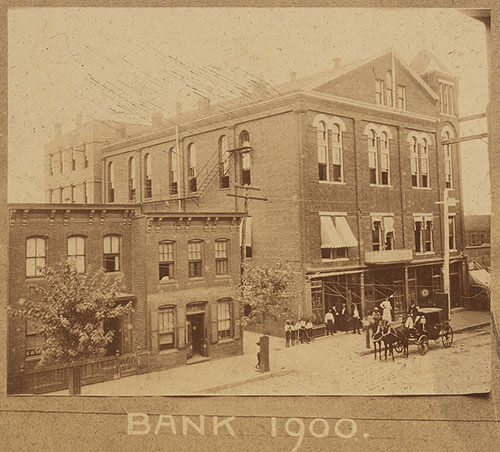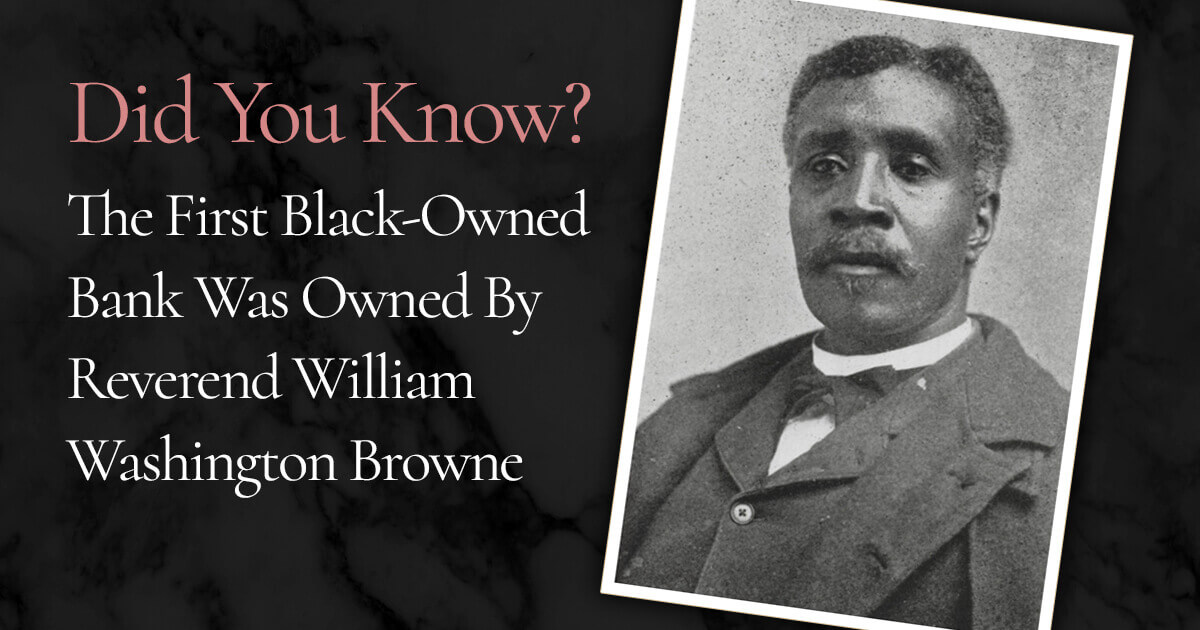February 6, 2020
The Savings Bank of the Grand Fountain United Order of True Reformers: the name of the first black-owned bank that opened on April 3, 1889. This bank at first operated from the home of Reverend William Washington Browne, a former slave from Georgia.
William Washington Browne was born on October 20, 1849 to Joseph and Mariah Browne in Georgia. His original name was Ben Browne, however, after being sold to a horse trader, he changed his name to William Washington.
William Washington escaped slavery, eventually turning to the Union army and then going to school in Wisconsin. Being very educated, he briefly studied ministry and also taught as a school teacher in the south. He became a minister in the Colored Methodist Church and soon married Mary A. Graham.
Browne believed in serving the interests of the black people around him. He became aware that alcoholism took much away from the black community, finding that black Americans spent hundreds on it, losing their businesses, being jailed and being denied their right to vote. He wanted his people, instead of wasting away their talents, to gather their money for buying property and expanding their rights to become law-abiding citizens.
“Let us stop playing, trifling and wasting our time and talents, and scattering our little mites to the four winds of the earth, and let us unite ourselves in a solid band,”
Reverend William Washington Browne
He joined the True Reformers, a fraternal organization that wanted to help the rise of black enterprises in financial and social means. The group, however, encountered civil unrest itself, and Browne decided to organize the Grand Fountain United Order of True Reformers (GFUOTR) in Richmond, Virginia.
Well-respected in the black community, Browne helped build the organization’s attention from temperance to insurance. He wanted black Americans to have monetary independence and freedom from the white community. GFUOTR changed insurance for black Americans, including insurance for funerals to help support the surviving families.
Browne was never done with his work. On March 2, 1888, his organization received a state charter to create a bank. By April 3, 1889, he founded the Savings Bank of the Grand Fountain United Order of True Reformers and became the first black-owned financial institution. Operated from in his home, the bank received over one thousand dollars in deposits in the first day. The bank then moved its location to 604-608 North Second Street.

During 1893, the United States suffered an economic depression with unemployment rates above 10%, violent strikes and political changes. The Savings Bank that Browne had created survived, being able to give the panicked people their money and remain operating.
The bank grew to operate branches in about 24 states. The GFUOTR also grew in real estate by owning meeting halls, a hotel, office buildings and farms. They also created a bi-monthly newspaper publication, opened stores to sell produce from their farms and more.
The bank survived until 1910, when it was found that a bank cashier “had embezzled more than $50,000 from member deposits”. Other parts of the GFUOTR businesses defaulted on loans and were unable to pay out insurance claims.
Quite a lot was accomplished by one man, determined to see his people grow to excellence of their own accord, not from the white community. Reverend William Washington Browne later died of cancer in December 21, 1897. His success shows the greatness and power that can come of a strong, united community.
To learn more about Reverend William Washington Browne and his accomplishments, please read:
Reverend William Washington Browne
Grand Fountain United Order of True Reformers










1 Comment
-
Comments are closed.I was more than happy to discover this great site. I want to to thank you for your time just for this fantastic read!! I definitely appreciated every little bit of it and i also have you saved to fav to check out new things here. Portia Cori Aunson